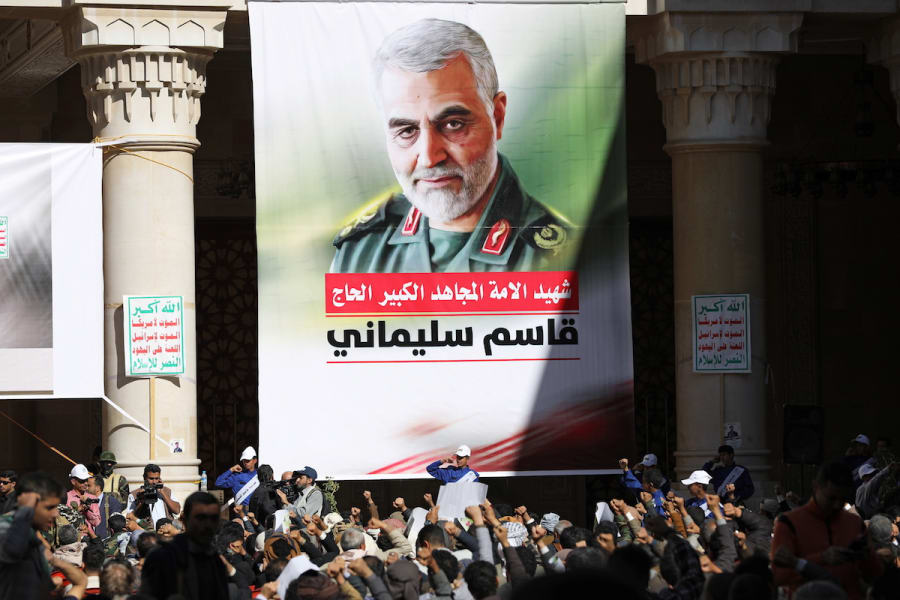Israel bracing for retaliatory attack on one-year anniversary of Soleimani assassination
US, Gulf states also wary of Iranian strikes as threats from Iran reach fever pitch

Israel, the United States and Gulf states are all bracing for a possible revenge attack by Iran as Tehran marks the one-year anniversary of the targeted killing of Gen. Qasem Soleimani.
Iran has threatened to avenge the assassination of the Quds Force commander killed on Jan. 3, 2020 in a targeted U.S. drone strike in Baghdad. Soleimani, considered Iran's No. 2 after Ayatollah Ali Khamenei, led the Revolutionary Guard Corps' extraterritorial wing in his latter years and was responsible for the deaths of over 600 U.S. soldiers in Iraq, according to the Pentagon.
His death is being commemorated in Iran where threats have reach a fever pitch.
"Those who had a role in this in this assassination and crime will not be safe on Earth," Ebrahim Raisi, Iran's judiciary chief, warned last week.
"They will witness a severe revenge," he said. "Do not presume that someone, as the president of America, who appeared as a murderer or ordered a murder, may be immune from justice being carried out. Never."
Though the United States was behind Soleimani's killing, Israel and the Gulf states are concerned that Iran could attack American allies in the region and are keeping an eye on Iranian strongholds in Iraq or Yemen from where attacks could be launched. Israel also has Hezbollah, the Iranian proxy organization entrenched in southern Lebanon on Israel's northern border, to worry about.
The anniversary of Soleimani's death comes as reports surface that Israel and Saudi Arabia are urging the Trump administration to carry out a surgical strike in Iran before the Jan. 20 inauguration. Tensions are expected to remain high in the region until then.
IDF Spokesman Brig.-Gen. Hidai Zilberman told the Saudi news website Elaph that all parties should be on high alert regarding the Iranian threat, which he described as a “powder keg liable to explode.”
On Saturday, Iran’s foreign minister Javad Zarif accused Israel of trying to provoke a war before the American presidential inauguration.
“New intelligence from Iraq indicate that Israeli agent-provocateurs are plotting attacks against Americans – putting an outgoing Trump in a bind with a fake casus belli," he wrote on Twitter.
Last month, IDF Chief of Staff Lt.-Gen. Aviv Kochavi said Israel is monitoring an increased number of threats from Iran against the Jewish state.
Meanwhile, Soleimani's successor, Esmail Qaani, warned America an attack could come from anywhere.
"It's even possible that there are people inside your home (the United States) that will respond to your crime," he said.
Soleimani was 62 when he was killed. He worked his way up through the ranks of the military from the time he joined in 1979. While he fought with the United States against the Taliban, Soleimani later turned his attention to bolstering Hezbollah in Lebanon. He was once described by a CIA operative as "the single most powerful operative in the Middle East today."
The Pentagon said that “General Soleimani and his Quds Force were responsible for the deaths of hundreds of American and coalition service members and the wounding of thousands more.”
In another major blow to Iran last year, the country's top nuclear scientist, Mohsen Fakhrizadeh, was assassinated in November during an attack attributed to Mossad operatives.

Nicole Jansezian was the news editor and senior correspondent for ALL ISRAEL NEWS.













